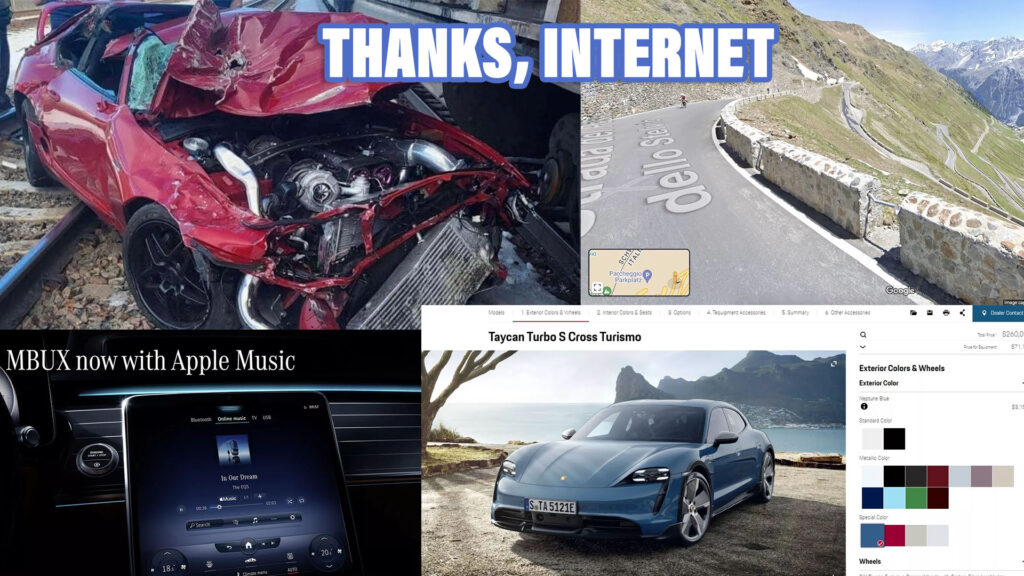The course of the world changed in April 1993, though hardly anyone realized it at the time. That was the date ‘Walker, Texas Ranger’ starring Chuck Norris made its debut on CBS, but it was also when the European Organization for Nuclear Research (CERN) put the world wide web, founded four years earlier by Tim Berners-Lee, into the public domain and made it freely available to anyone who had a computer.
If you you were born after 1993 you might not remember a time when the internet wasn’t around or have first-hand experience of how much it has transformed the car industry, the car hobby and car culture. Believe us, it’s been seismic, and we’ve come up with 15 ways we think the internet has changed the car game.
See And Hear Cars You’ll Probably Never Drive In Real Life
Related: The Internet Is Full Of Bad Automotive Advice So Let’s Enjoy Some Of The Worst
As a kid in the late 1980s I would read and re-read car magazines, imagining what these cars sounded like. But paper doesn’t work like that (although Fast Lane magazine twice gave away audio cassettes of cars lapping a race track), and the Top Gear TV show of the time seemed more interested in features on baby seats than supercar drag races. Thanks largely to YouTube though, which arrived in 2005, we can jump virtually into all kinds of cars we’d never get near in real life and hear them being comprehensively beasted.
It’s A Rubbernecker’s Dream
We’ve all got a macabre fascination with car wrecks, but before the internet you might go all year without seeing much more than a minor bumper tap happen in your own town, and as for watching a Lamborghini pirouette into a barrier on the freeway right in front of you, forget it. Now we can gorge ourselves on dashcam and car meet footage of cars being wrecked and pore over the still images of the devastation left behind as if we were actually there when it happened.
Buying A Car? The world Is Your Dealer Lot
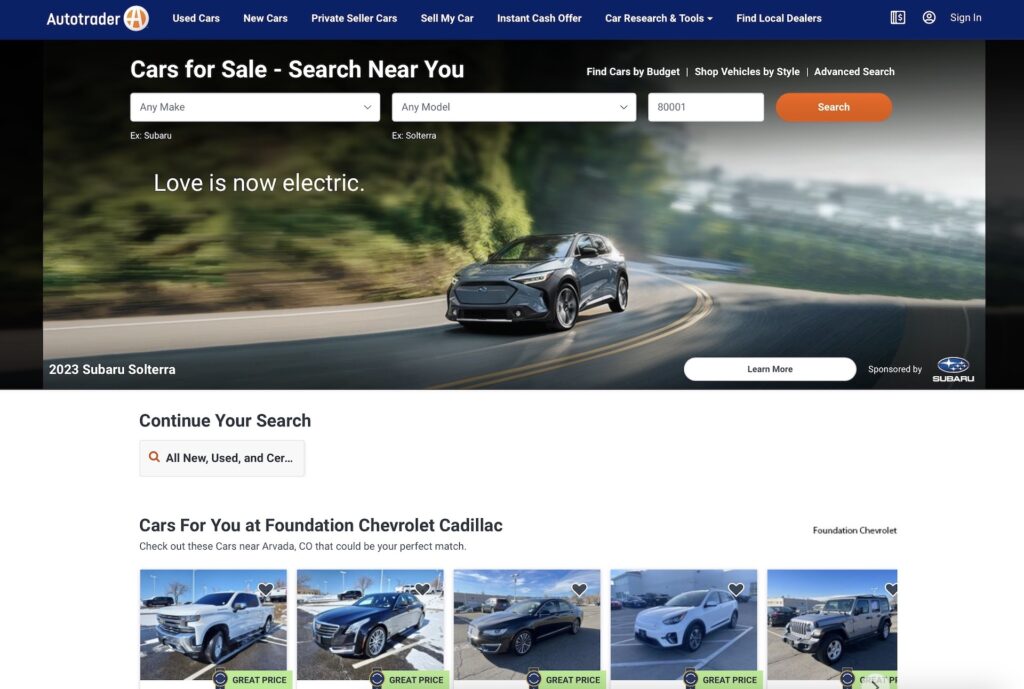
So you want to buy a car? In the old days you went to your local dealer, grabbed a copy of Autotrader for your region, or, if you were after something rare-groove, bought a specialist magazine and checked out the classifieds. Now we can browse cars for sale on the other side of the world, and easily compare prices for local cars to make sure we’re getting a fair deal without leaving the couch.
Locating Parts For Repairs, Builds And Restos Is A Cinch
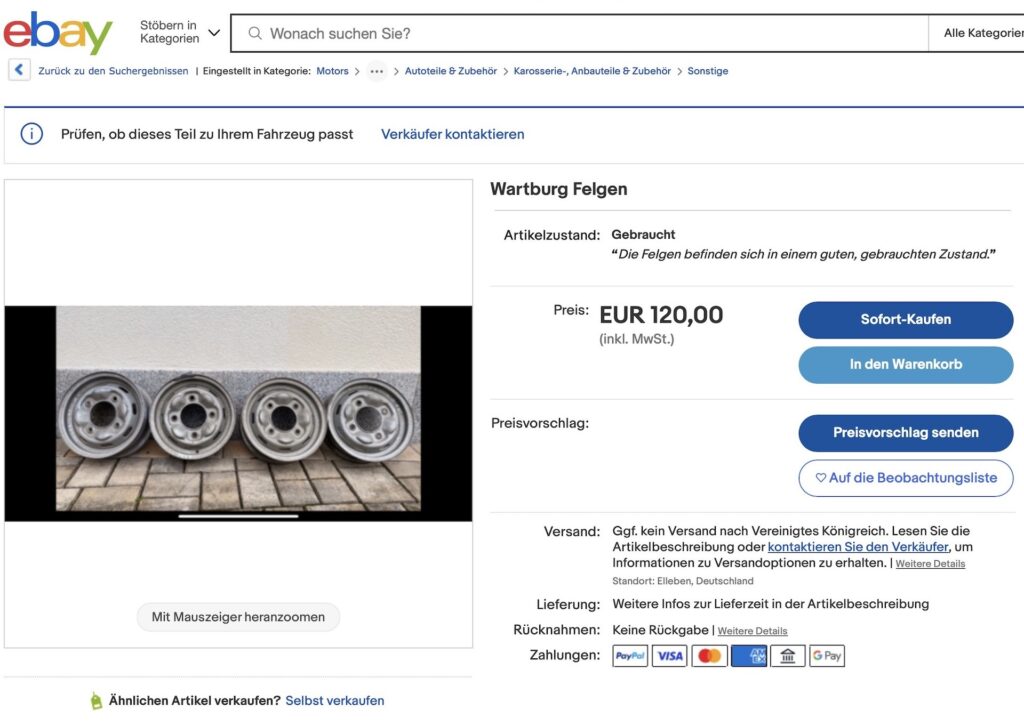
Tracking down a replacement wheels for your Wartburg in Texas must have been a nightmare before the web went live. Now you can jump on eBay and easily hunt down a set in Europe, setting alerts to inform you later if nothing is available now, and you can also sell your own spares.
You Can Design Your Dream Car A Hundred Times Over
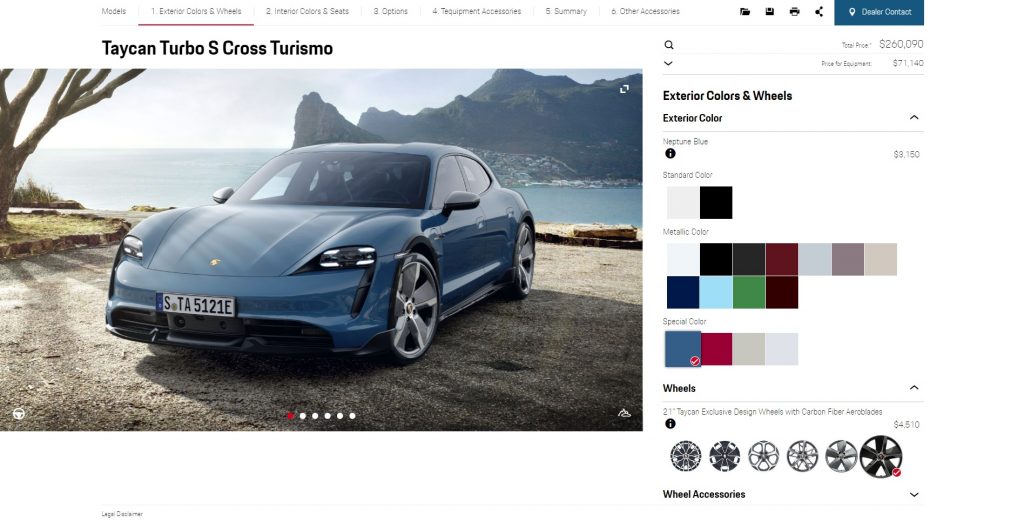
I used to love collecting brochures when I was young, persuading my dad to pose as a genuinely interested buyer. But configurators are 100 times better. Now we get to dig through the specs of supercars, not just sedans, and see them kitted out in the color and wheels of our choice.
There’s A Tutorial For Everything
Chilton (no relation) and Haynes manuals were lifesavers when it came to fixing cars in the pre-internet age, but they’re not much good for tuner mods and why settle for seven grainy black and white images anyway when you can watch a guy actually tear down the relevant busted part on your computer and show you exactly how it’s done. And if you still don’t get it you can probably shoot the dude a message, or ask on a forum, and someone will be able to help. Which leads us on to…
Make Fast Friends
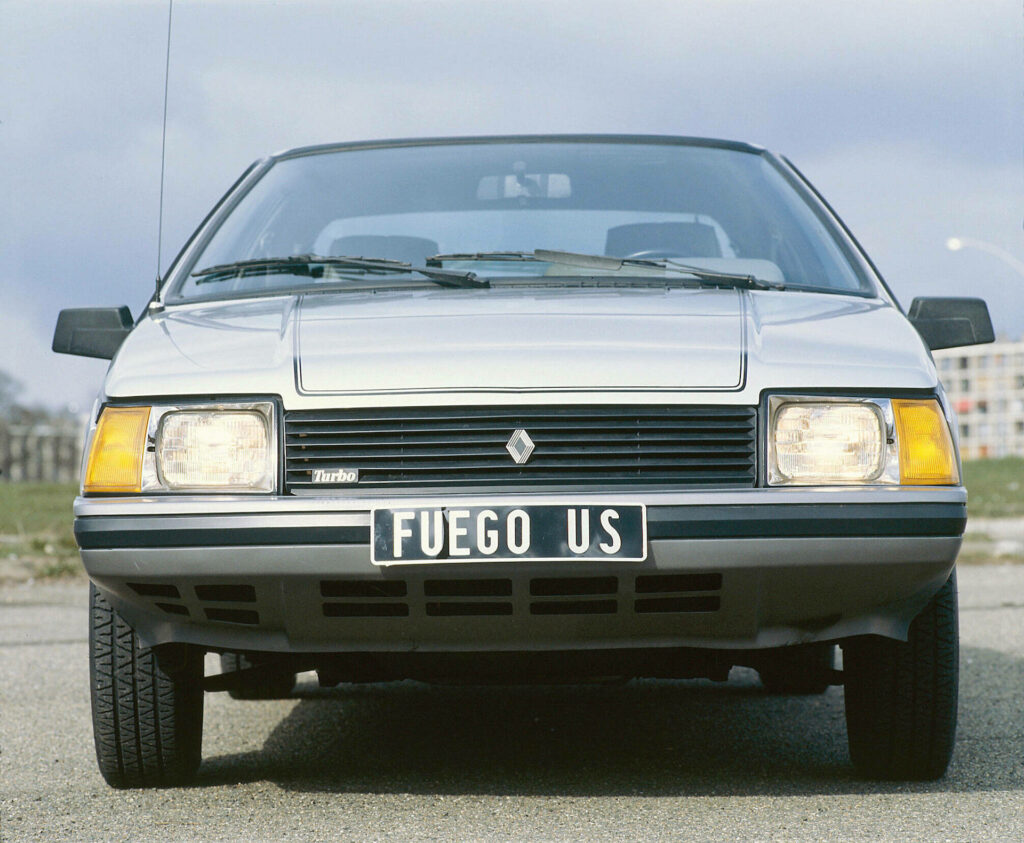
There have been car clubs as long as there have been cars, but the internet has helped people from all over the world meet other people who share their passion, even if they never get to meet in person. That’s been particularly beneficial for people with niche automotive interests. Being the only Renault Fuego fan in Flagstaff must have been pretty lonely until the mid 1990s. Come to think of it, it’s probably still lonely.
Finding Car Meets

Using the internet to find like-minded car fans also means it’s easier to keep up to date with the kind of car meets and shows you might want to go to, whether it’s a formally organized event like Pebble Beach or Goodwood, or an impromptu takeover on an L.A. intersection. And if you can’t make it along this time, or are an entire continent away, you can rely on social videos and images to give you a taste of what you missed.
Discovering The Best Roads And Routes
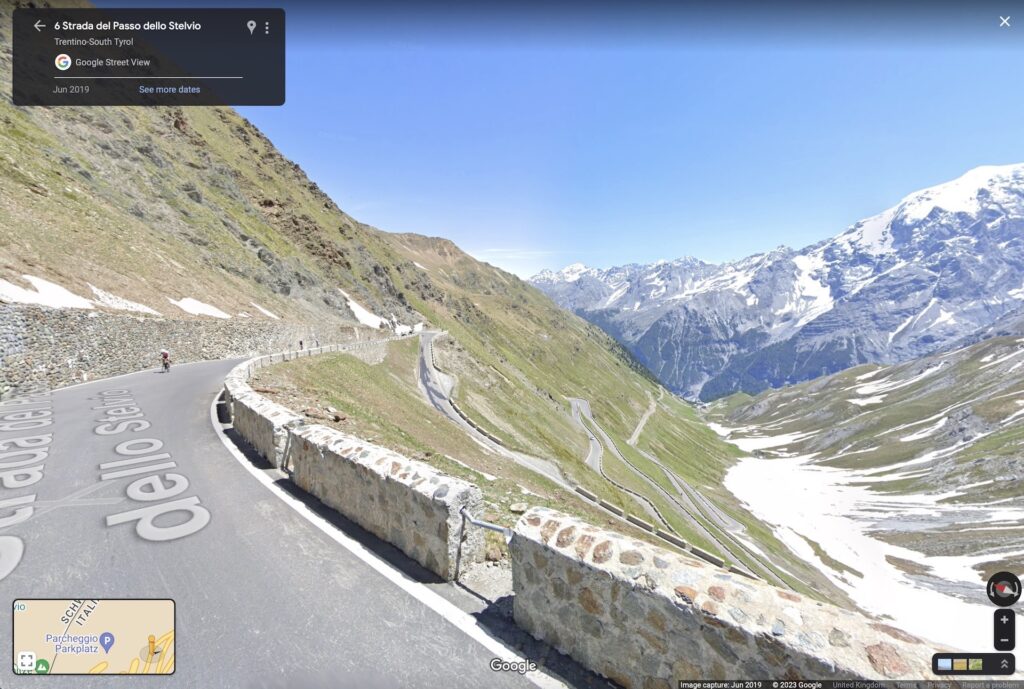
We still love old-fashioned maps; there’s something special about unfolding one and planning out your route (and you can’t beat that euphoric feeling when you actually manage to correctly fold it up again afterwards on your third attempt). But being able to sit in a chair on one side of the world and plan a road trip on the other, right down to sussing out whether that pull-off area on that road 9,000 miles (15,000 km) away is going to be suitable for taking a few pictures? That is amazing. Thanks, Google Earth.
Keeping Track Of Stolen Cars
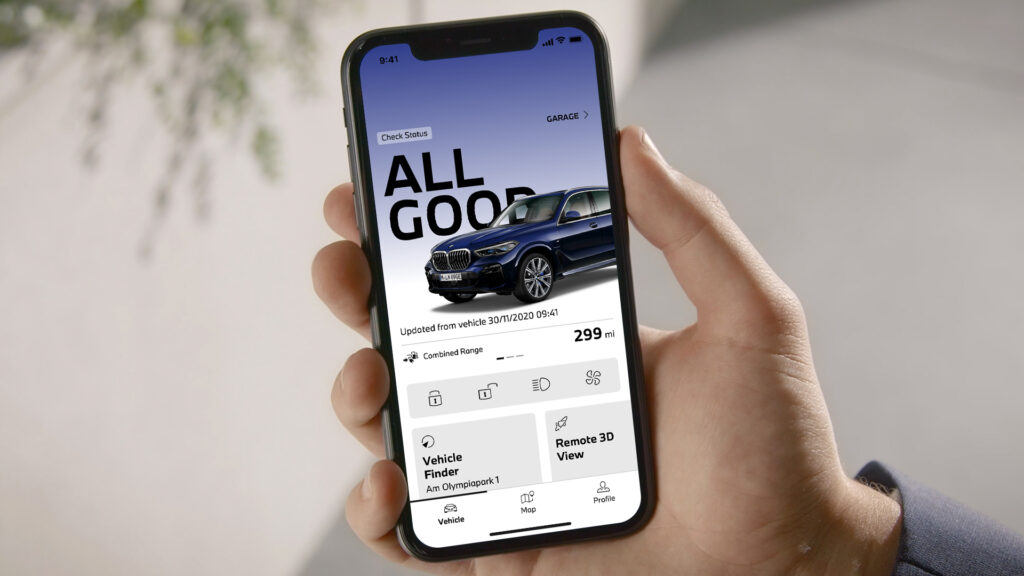
Related: Thieves Are Now Using Apple AirTags To Track And Steal High-End Vehicles
Between Google Earth and Street View images, you endlessly showing off your house on Instagram, and low-lives stashing an Apple AirTag on your Corvette, thieves sadly might find it easier to locate your car and take it off your hands than they used to. But at least the internet also makes it easier to find out where it’s gone with web-based tracking software that will alert you on your smartphone if your vehicle takes an unauthorized trip. Being able to pre-warm your car on frosty mornings, again using your phone, is a big hit with us, too, or it is when those apps actually work.
It’s Like Having 1 Million CDs In Your Car
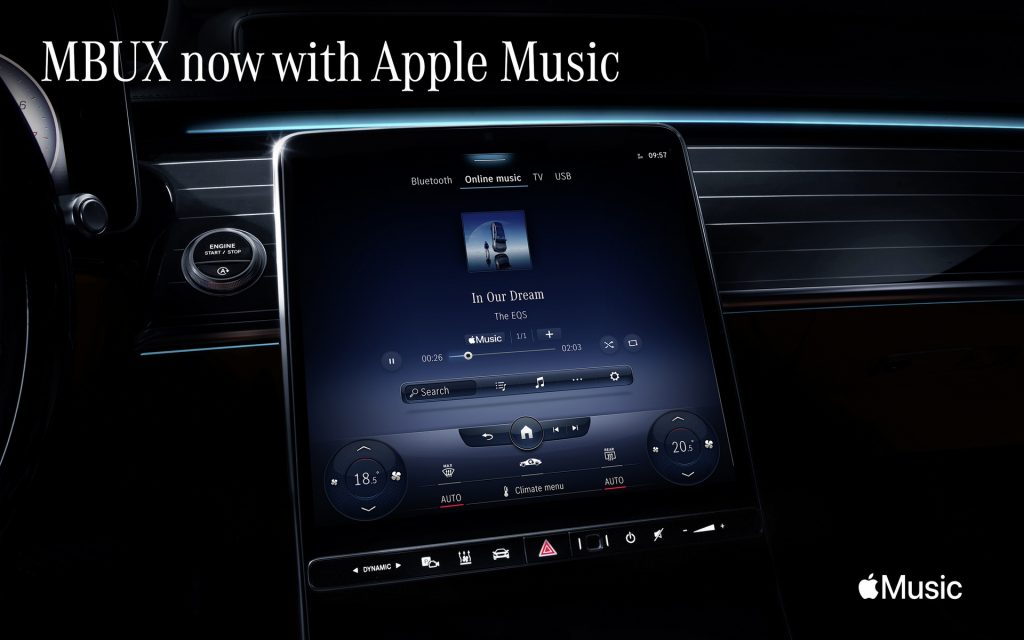
Twenty years ago road trips meant taking two bags: one for clothes and a second, same-sized bag for CDs. The iPod made things easier, but you still had to load the songs into your iTunes account and then onto the MP3 player. Now, thanks to streaming services we can choose from millions of songs, or, stick on a podcast, another great internet invention.
Geeks Can Research Obscure Car Facts Forever
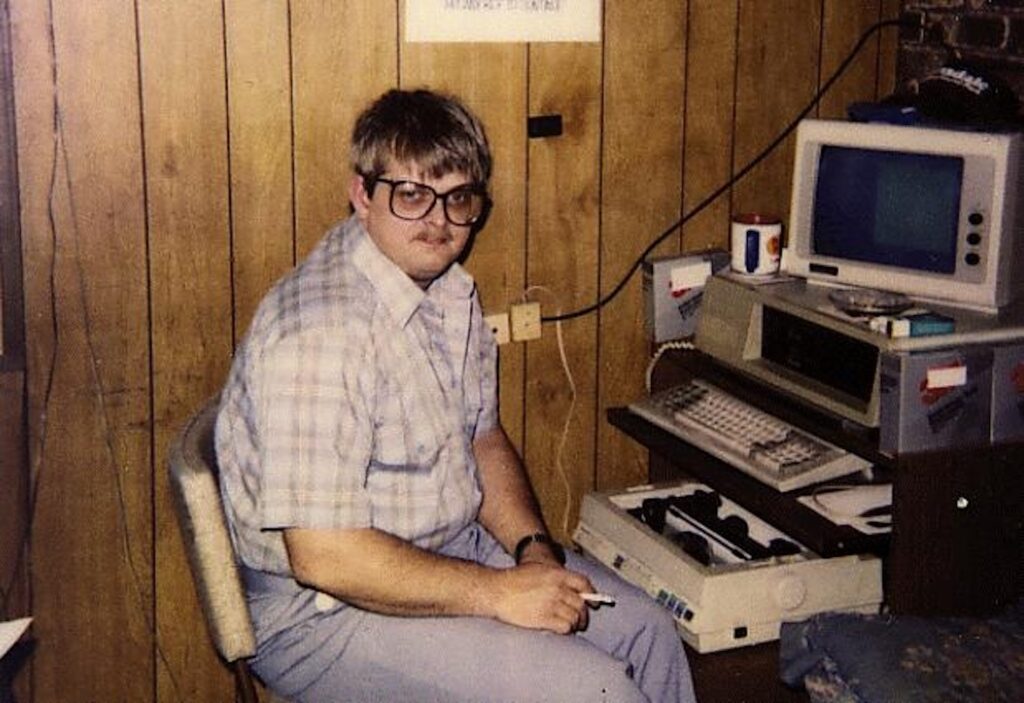
The internet is full of misinformation, but it’s also a great source of real facts, including ones about cars. If you want to know which year of Corvette was the only one in the model’s first four generations not to feature an emblem on the gas cap (1974) or who came 23rd in the 1991 Indy 500 (Tero Palmroth), it’s a damn sight easier to find that stuff out today, decades after the event, than it was before the arrival of the internet. To be honest though, you ought to get out more.
Watch Your Favorite Race Or Movie Chase Whenever You Want
Let’s briefly dip back into YouTube for another hit of instant gratification. Pre-web, if you wanted to watch your favorite movie car chases you’d have to locate the relevant bits on VHS tapes (presuming you’d managed to record them in the first place) and it could take all afternoon. Now you can pull out your phone while you’re waiting for your girlfriend to run into the store or your kids to come out of school and mainline them.
Automakers Have A Direct Connection To Fans
In the old days when an automaker wanted to get their message to you the consumer they would do it via adverts, via the dealer when you called in to check out the cars having seen or watched those adverts, or by offering their cars to the press, hoping those journalists would say nice things about them.
But now that automakers have their own Instagram accounts and their own YouTube channels they can directly control the message and information they want you to see, and not have to worry about you finding out the stuff they’d prefer you didn’t.
The Internet Gave You…Carscoops
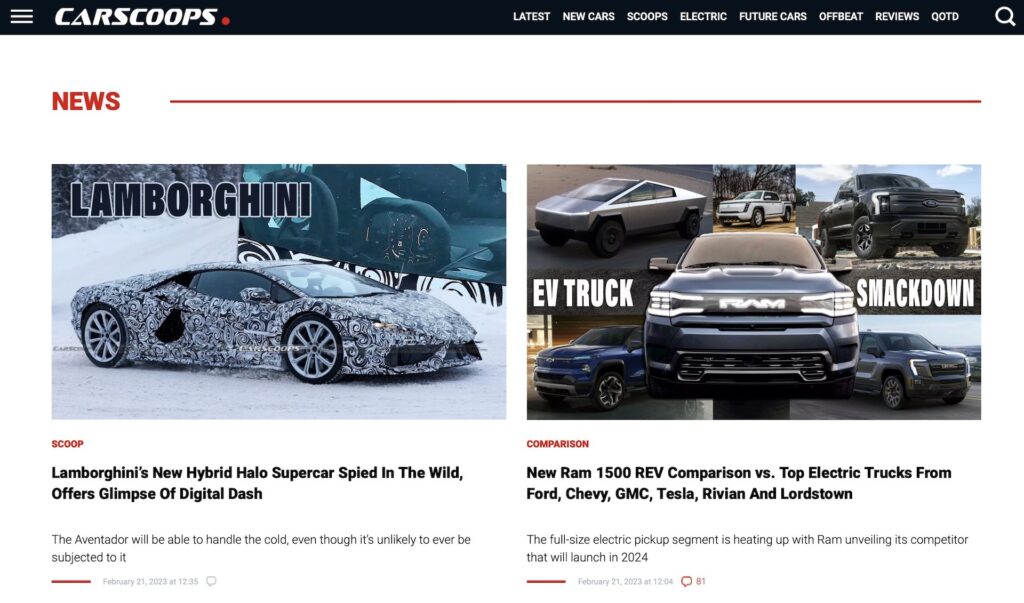
Fortunately, the same tools that allowed carmakers to communicate with you directly, bypassing legacy media outlets, also allowed a new generation of media commenters to broadcast their own take on the world of cars. Your favorite (and least favorite) YouTubers and influencers and sites like Carsccoops have grasped the opportunity presented by the web to massively increase your options when trying to find the kind of content that gets your engine revving. And unlike the magazines some of us spent every cent on when we were growing up, this digital content doesn’t cost you a penny.
There’s our take on how the internet has changed the car world. Do you think we’ve missed anything? Is there anything the internet has made worse and how do you think the internet will change our four-wheeled world in the next 30 years? Will chatbots be writing these posts, will trackers in our cars hand out speeding fines the second we’ve busted the posted limit, and will someone, whipped into a spending frenzy by internet auction fever, pay $600,000 for a Chevy Cavalier on Bring-a-Trailer? As ever, leave a comment and let us know.




